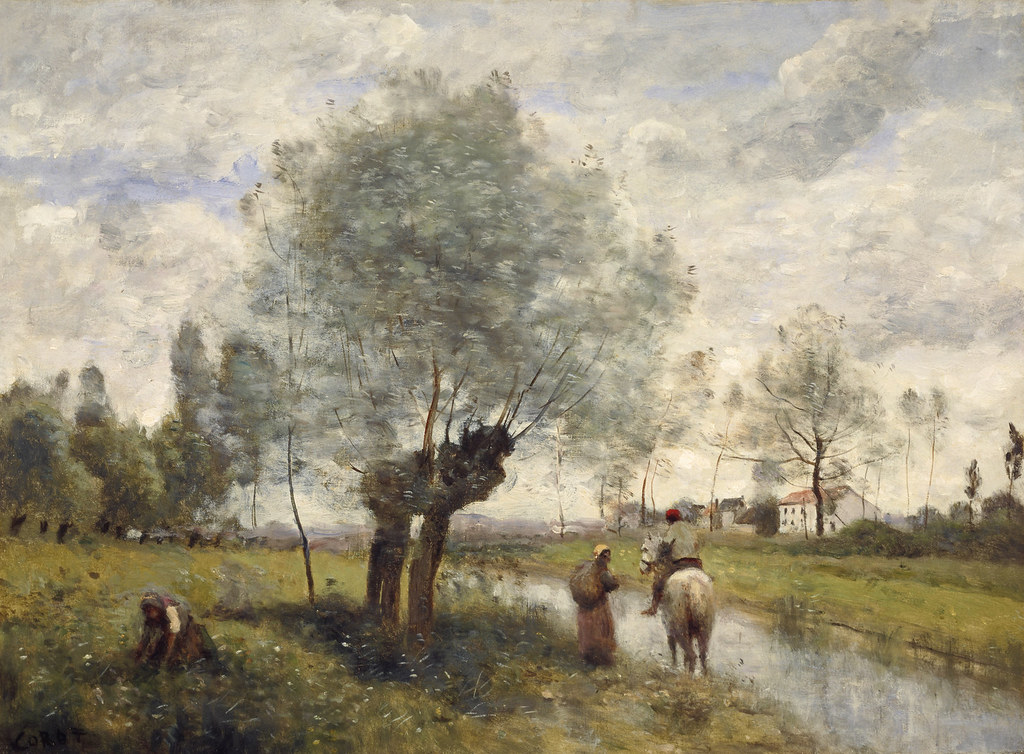The Pew Center for research reports that in 2009, the year FPR drew its first fetid breath in our perishing republic, the hawkers of “news” didn’t exactly give the “consumers” of it what they were looking for. Imagine that.
(Were the hawkers more trustworthy fifteen years ago? I doubt it. They’ve always been telling us what to pay attention to so that they can get on with the more important business of telling us what to think about everything they’re telling us to pay attention to.)
Among the stories that, according to Pew, got “more coverage than interest” were the Sotomayor nomination, the Sotomayor hearings, the death of Senator Edward M. Kennedy, the scandals of governors Blagojevich and Sanford, the coat-turning of Senator Arlen Specter, and the publication of Sarah Palin’s high school term paper, Going Rogue.
Not that Russia, scourge that it is, isn’t still visible from the political philosopher’s house.
But apparently we were very much invested in 2009 in the moist landing of US Airways Flight 1549 in the Hudson River, the Air France jet crash, and one other really big wreck: the demise of Michael Jackson, who chose ’09 to beat it. We paid attention to the Swine flu. We rightly cared about the AIG bonuses. That was the “big” story nearest FPR’s “launch” in March. And piratical behavior off the coast of Somalia tickled our fancy.
You might recall the shootings at Fort Hood, the inauguration of one Barak Obama, and his unopposed economic stimulus plan. Its aim was to prolong hypermobility when it might have helped solve our on-going and ever-increasing farm crisis. Happy Motoring, to use James Howard Kunstler’s phrase, is apparently more important than eating in perpetuity. This is why so much farmland, as per US Government policy, is still in ethanol production. And that is why Iowa has already spent down about fifty percent of its endowment in topsoil.
The little digging I’ve done into “what happened” in 2009—none of it happening in my township, where I actually live—reminds me of how little attention I paid then, and how little I pay now, to “what’s happening.” One reason for this lies at the heart of the FPR project even now, fifteen years on. Caring about the near-at-hand, the small, and the local has an inherent worth and beauty to it; it is meaningful in all the ways that caring about the large and the distant isn’t, can’t, and never will be. Need a Porcher say more than “General Election”? Here in the land of debris and the home of the knave legal adults are actually considering for Commander-in-Chief one man (or is it a hologram?) who’s leaking mummy dust all over the Oval Office and another who’s sweating as it were great drops of pumpkin juice. The wonder is that these two clowns, for all their creepiness and crookedness, aren’t competing for Scheisster-in-Chief. Or are they?
Do you get the feeling we’re all on Candid Camera?
An enterprising young fellow might set up bleachers and sell popcorn.
Anyway: note the stuff irrelevance is made on—and only fifteen years gone by. Yet a little while and with the poet of Bemerton we will all “mark here, below, / How tame these ashes are, how free from lust.”
Meanwhile, here at home, on our little farm happily known neither far nor wide as Dumb-Ass Acres, Est. 2012 fast upon a disruptive but salutary repatriation effort, there’s plenty to attend to, much of it from that time that Andy Catlett (in Early Travels) calls “the old world, in which our people lived by the work of their hands, close to weather and earth, plants and animals.” It was and is “the true world,” he says, whereas “the new world of cheap energy and ever cheaper money, honored greed and dreams of liberation from every restraint, is mostly theater. This new world seems a jumble of scenery and props never quite believable. An economy of fantasies and moods, in which it is hard to remember either the timely world of nature, or the eternal world of the prophets and poets.”
Andy would lose a hand to the Machine, but he wouldn’t lose his sense. He remains FPR’s tutelary spirit, fiction’s version of the poet from the Bluegrass State.
During the week the website “went live” I was 45 years old, and at that time the thought of repatriation for me was like a story’s rising action inching ever nearer its climax. My children were 11, 8, and 5, and still today, as Robinson Jeffers said, “I would have them keep their distance from the thickening center.” The center cannot hold.
I’m 60 now, and much to my astonishment I’m both a father-in-law and a grandfather. Between us my wife and I have 76 years’ experience negotiating that uneasy truce, that supple synthesis, known as marriage, easier and better and trucier with every passing year. It is life’s own “season of mists and mellow fruitfulness, / Close bosom-friend of the maturing sun.” We have hens and lambs and hogs, fruit trees and gardens, vocations that pay and vocations that don’t. We have friends, a parish, nieces and nephews nearby. And more perhaps than anything else we have that honorable estate, which we did not enter into unadvisedly or lightly. It is a great mystery. And it is ours only.
And the shadows lengthen. My shadow lengthens. It’s hard to say how many orbits I have left, but at least the sun is a center that doesn’t thicken. It belongs to the old world.
None of what my blessed existence consists in has anything to do with “what’s happening” in the world—except, of course, that like everyone else I know I’m trapped in systems I didn’t make and would fain be free of. The localist can’t ignore the randy hand of the globalist reaching for his daughter’s skirt, nor the bellicose warfaring empire-builders trying to lure his sons from the peaceful bliss of minding their own business; he can’t affect blindness in the face of such grim realities as the goddamned Machine, the dysfunctional but all-intrusive Fed, the sinister machinations of the demoniacs in Silly Con Valley and their pusillanimous all-havoc-wreaking “smart” phones.
But he can refuse to own one. He can turn toward the things at hand, and he must. He can say with Jeffers, “be in nothing so moderate as in love of man,” that “clever servant” but “insufferable master.”
And, so,
While this America settles in the mould of its vulgarity, heavily thickening to empire, And protest, only a bubble in the molten mass, pops and sighs out, and the mass hardens, I sadly smiling remember that the flower fades to make fruit, the fruit rots to make earth. Out of the mother; and through the spring exultances, ripeness and decadence; and home to the mother.
Yes, children, and you my granddaughter, my darlin’ Clementine, turn to the things at hand. The people famous for being well-known, dead or “living,” the pirates and the turncoats and the jetliners—none of these is worth giving your one brief fragile life to. The world as you found it, the world that the noisy frenetic set calls the “real world,” grins like a graveyard. Walk boldly. Whistle not, but do keep walking. Yes. Keep walking right on by it. And let the dead bury the dead.
Image Credit: Camille Corot, “Landscape at Coubron” (1870-1872) via Flikr






3 comments
Troy Thompson
Lovely, prose, Jason. What heavy content for your newborn granddaughter! She will need a PhD to understand it.
Thanks for writing.
TJ
The new headshot is lookin’ like Gramps. Much to be said for that.
dave
I appreciate all the work you all have done over the years, Professor.
Comments are closed.